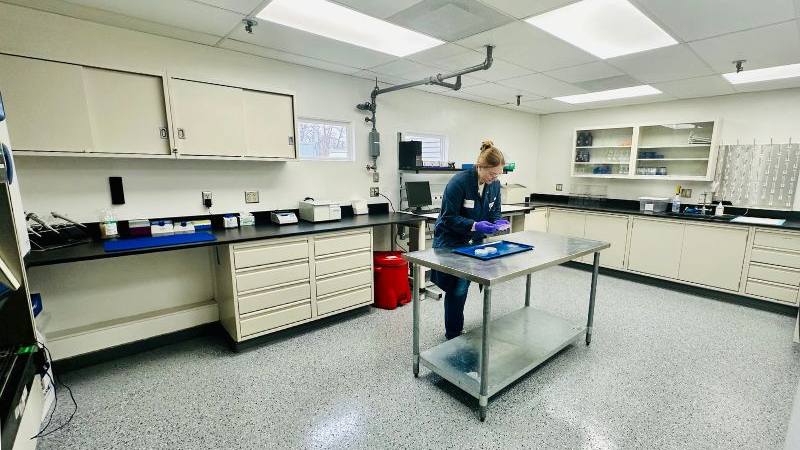How Insecticides Are Shaping the Future of Agriculture
Insecticides have played a pivotal role in modern agriculture, safeguarding crops from harmful pests that threaten food security. As the global population continues to rise, farmers are under increasing pressure to maximize yields and ensure sustainable farming practices. Today, insecticides are evolving with advancements in biotechnology, precision agriculture, and environmentally friendly formulations.
According to Persistence Market Research, the Insecticides Market is segmented by chemical composition of the insecticides such as organophosphorus compounds, pyrethroids, neonicotinoids, methyl carbamates, and others with crops type such as cereals & grains, oilseeds & pulses, fruits & vegetables, and others. Insecticides are specialty chemical products used particularly to control a variety of insects and disease carriers, such as ticks, mites, spiders, mosquitoes, rats and mice. Pesticides are also used in agriculture, horticulture, floriculture, public health, industrial applications, domestic, and commercial paste management program. This article explores how insecticides are shaping the future of agriculture and ensuring global food security.
The Importance of Insecticides in Modern Farming
1. Pest Control for Higher Yields
Insects such as aphids, caterpillars, and beetles can cause significant damage to crops, leading to lower yields and economic losses. Insecticides help prevent infestations, ensuring farmers can produce sufficient food to meet market demands. Without proper pest management, global crop losses could reach up to 40%, severely impacting food supply chains.
2. Protection Against Emerging Pests
Climate change and global trade have introduced new pest species in regions where they previously did not exist. These invasive species pose new threats to agriculture, and insecticides provide an essential tool to control their spread and prevent crop devastation.
3. Ensuring Food Security
With a growing world population expected to reach 9.7 billion by 2050, food security remains a critical concern. Insecticides allow farmers to protect staple crops such as wheat, corn, and rice, ensuring a steady supply of food. Effective pest management reduces food waste and helps stabilize prices in the global market.
Innovations in Insecticide Development
1. Biopesticides: The Eco-Friendly Alternative
Biopesticides, derived from natural substances like bacteria, fungi, and plant extracts, are gaining traction as an environmentally friendly alternative to chemical insecticides. These solutions target specific pests without harming beneficial insects such as bees and butterflies. As consumer demand for organic and sustainable farming grows, biopesticides are expected to play a larger role in the future of agriculture.
2. Precision Agriculture and Smart Insecticides
Advancements in agricultural technology have led to the development of smart insecticides, which use sensors, drones, and artificial intelligence to target pest populations with high precision. This minimizes chemical overuse, reducing environmental impact while maximizing effectiveness. Farmers can now apply insecticides in precise quantities and locations, improving efficiency and reducing costs.
3. Genetically Modified (GM) Crops with Built-in Resistance
Biotechnology has enabled the development of genetically modified crops that produce their own insecticidal proteins. For example, Bt (Bacillus thuringiensis) crops naturally repel pests, reducing the need for chemical applications. These GM crops help decrease the environmental footprint of farming while maintaining high yields.
4. Nanotechnology in Insecticide Formulation
Nanotechnology is revolutionizing insecticide applications by creating nano-sized particles that improve the absorption and effectiveness of active ingredients. These formulations enhance the efficiency of pest control while reducing the amount of chemicals released into the environment.
The Environmental and Health Considerations
1. Reducing Pesticide Resistance
Overuse of chemical insecticides has led to pesticide resistance in certain pest species, making them harder to control. Scientists are developing integrated pest management (IPM) strategies that combine chemical, biological, and cultural practices to minimize resistance and maintain long-term effectiveness.
2. Protecting Pollinators and Beneficial Insects
Pollinators like bees play a crucial role in agriculture, and the indiscriminate use of insecticides has raised concerns about their declining populations. The future of insecticides will focus on formulations that target harmful pests while preserving beneficial insects, ensuring ecosystem balance.
3. Eco-Friendly Application Techniques
Innovative spraying methods, such as electrostatic sprayers and controlled droplet application (CDA), are being developed to reduce insecticide drift and environmental contamination. These techniques improve precision, decrease chemical waste, and protect surrounding ecosystems.
The Future of Insecticides in Agriculture
The future of insecticides lies in balancing productivity with sustainability. As research and innovation continue to advance, we can expect:
- More sustainable and biodegradable insecticides that break down harmlessly in the environment.
- Increased use of AI and machine learning to optimize pest control strategies.
- Greater reliance on biological control methods to minimize chemical dependency.
- Improved regulations and monitoring to ensure safe and responsible use of insecticides.
By integrating these advancements, insecticides will continue to be a cornerstone of agricultural success, ensuring food security while protecting the environment.
Conclusion
Insecticides have come a long way from their early chemical formulations, evolving into sophisticated tools that enhance agricultural productivity and sustainability. With innovations in biopesticides, precision technology, and genetic engineering, the future of insecticides looks promising. By adopting eco-friendly and smart solutions, farmers can effectively manage pests while ensuring a healthier planet for future generations.
As the agricultural industry continues to evolve, the responsible use of insecticides will play a crucial role in shaping the future of farming.





